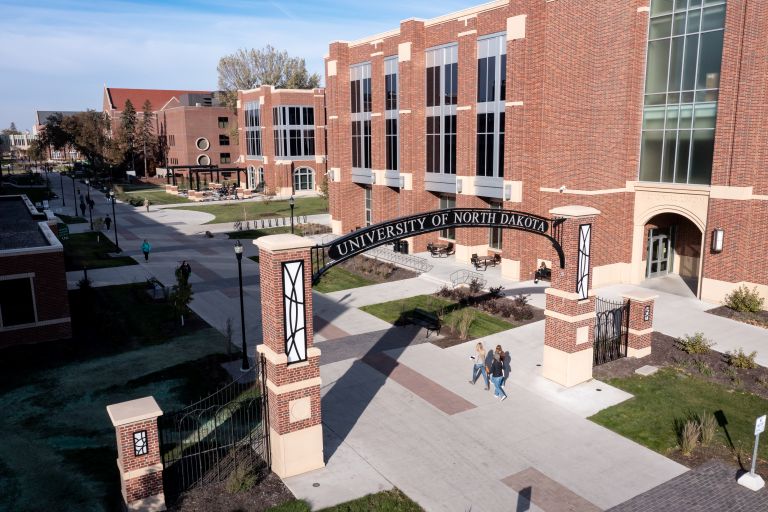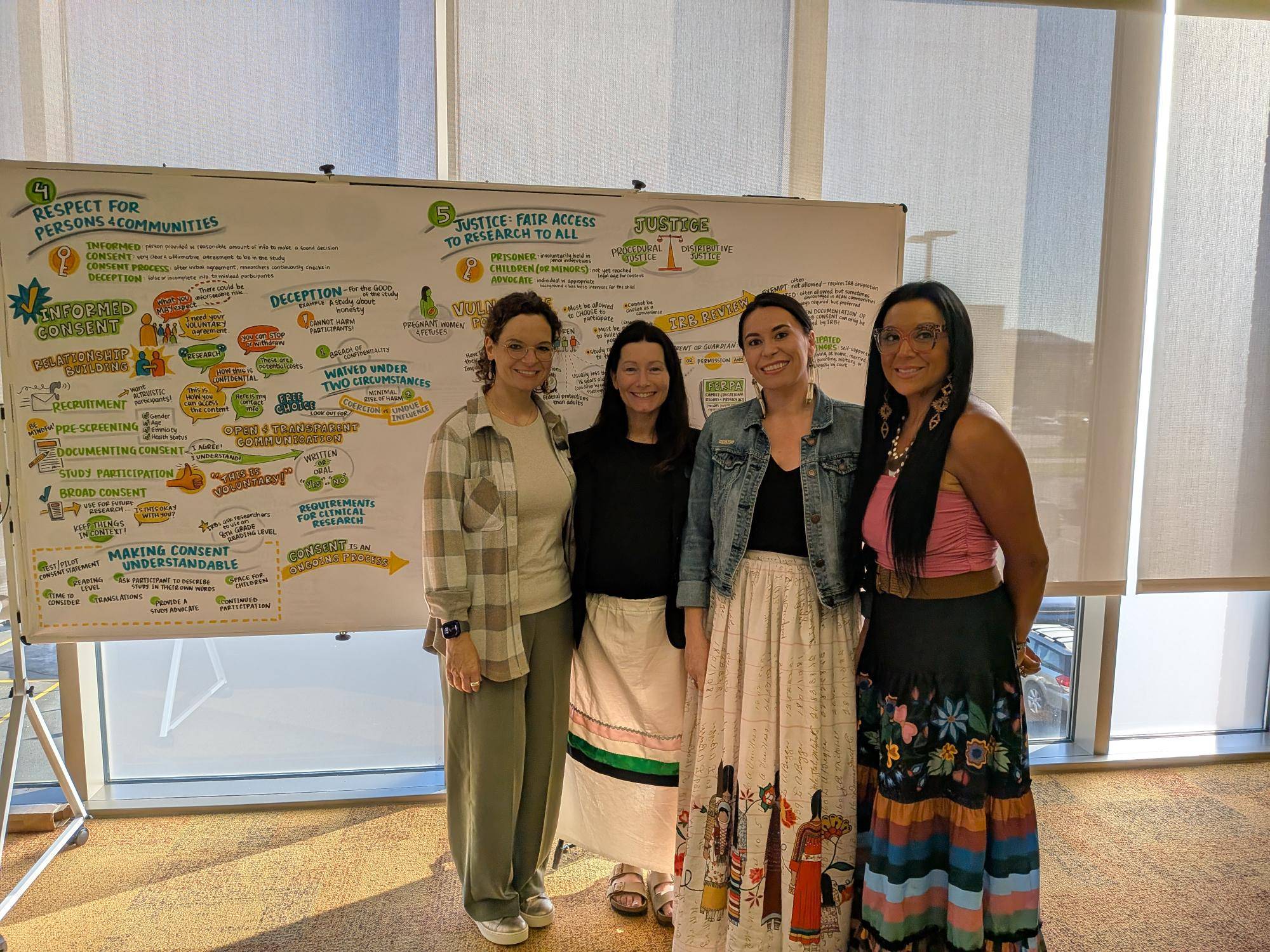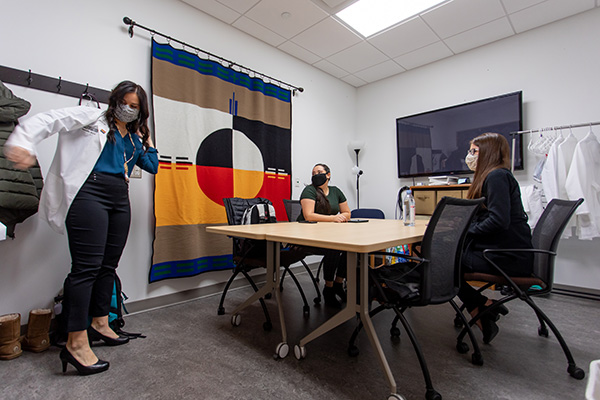ITRRC Center of Biomedical Research Excellence
In 2021, the UND School of Medicine & Health Sciences received a $10 million NIH award to develop an Indigenous Trauma & Resilience Research Center (ITRRC).
American Indians in North Dakota and throughout the region suffer from significant and distinct health outcomes. The existing scientific literature highlights the relations among these health outcomes and inter-generational (historical) and intra-generational (individual history) adverse events, including forced boarding school participation, social marginalization, adverse childhood experiences, and toxic stress.
The focus of the ITRRC is to build research capacity and infrastructure to ultimately address conditions that negatively impact health status and identify protective factors of Tribal connectedness and resiliency.
The ITRRC will establish resource cores and support research led by early-career investigators
across UND. Additionally, the program will provide mentorship and funding to research
project leads (RPLs) and pilot project leads (PPLs) to foster their transition to
independent investigators.
Introducing Joel Steele, PhD

Dr. Joel S. Steele, an enrolled member of the Sisseton-Wahpeton Oyate and Fort Peck Tribes, steps into his new role as Principal Investigator (PI) for the ITRRC. A quantitative psychologist by training, Dr. Steele brings deep expertise in advanced statistical modeling, longitudinal and dyadic data analysis, and innovative approaches to studying aging, Alzheimer's Disease and Related Dementias (ADRD).
Rooted in both Tribal and European ancestry, Dr. Steele embodies relational accountability in his scholarship, weaving together digital tools, community-driven research, and knowledge to strengthen pathways of healing and resilience among American Indian and Alaska Native (AIAN) people. His current projects span from harmonizing digital and clinical data for ADRD care to developing culturally grounded mobile health interventions for AIAN women.
As PI of the ITRRC, Dr. Steele’s leadership will expand research capacity, strengthen mentorship for the next generation of health scholars, and ensure that data and discoveries honor Tribal priorities while advancing health and well-being for AIAN communities.
The ITRRC is supported by the National Institute of General Medical Sciences of the National Institutes of Health under Award Number P20GM139759.



